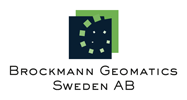ISS
Istituto Superiore di Sanità, Roma, Italia
National Institute of Health, Rome, Italy
ISS conducts scientific research in a wide variety of fields, from cutting-edge molecular and genetic research to population-based studies of risk factors for disease and disability. Research priorities are based on those set forth in the National Health Plan. The Institute is also involved in several major clinical trials, which are frequently conducted in cooperation with the Scientific Institutes for Research and Care (IRCCS) network and Hospitals. Among its activities, it monitors trends in disease, mortality and other health factors and provides technical support for health-related environmental surveys and for investigations of epidemics and other public health problems at national, regional and local level. It also supervises the laboratories engaged in the testing of prohibited substances in sport and the national veterinary institutes. Finally, it has an important role in monitoring and coordinating blood transfusion services and plasma production in Italy.
The research group for environmental quality and fish farming (Qualità Ambientale e Ittiocultura, QAI) is part of ISS’ Department for Environment and Primary Prevention (Ambiente e Connessa Prevenzione Primaria, AMPP). It consists of multidisciplinary experts who deal with the health of aquatic ecosystems (natural, artificial and urban), environmental quality and fish farming, through the study of microbiological, chemical and physical, chemical, biological (indicators biological and toxic algae), ecotoxicology, molecular, cartographic (GIS), management and sanitation for the prevention of effects on human and animal health (fish farming) and the health and environmental risk assessment.
ISS activities in the H2020 CyanoAlert project
The ISS unit will provide available in situ data since 2002 for cross-validation of MERIS satellite detections; besides this the unit will perform water samplings for toxicological and biological analysis, collected at least monthly for 13 months from five surface stations situated on the lakes (Albano and Vico) chosen for field validation. The unit will co-operate to verify correspondence between in situ data and MERIS, Satellite -2 and Satellite -3 cyanobacterial detections. The unit will co-operate to assist in the usability assessment of the service platform.
ISS and its responsibilities in the region
The Italian National Institute of Health is a national government institute and conducts scientific research in a wide variety of fields. Research priorities are based on those set forth in the National Health Plan. Among its activities, the Institute is also involved in monitoring trends in environmental degradation and pollution factors influencing health quality. It provides technical support for health-related environmental surveys and for investigations of epidemics and other public health problems at national, regional and local level. The Institute is also involved in the development of efficient and economic new techniques and analytic methods to realize fast extensive monitoring of toxic blooms throughout the country.
ISS study area
Lakes Albano, Vico, Occhito, Cuga and Nemi (this latter until 2003) are anthropogenically eutrophicated lakes (3 of them, Vico, Occhito and Cuga, used for drinking purpose) where toxic cyanobacteria blooms occur regularly in winter and summer, consisting mostly of Planktothrix rubescens. In Lake Albano Cylindrospermopsis raciborskii and Aphanizomenon ovalisporum were observed, too, during spring, summer and early autumn 2004. Ichthyic fauna of 4 of these lakes (in Vico case high quality commercial species) was found contaminated by microcystins and cylindrospermopsin, causing fishing bans. Commercial vegetables grown around Vico Lake were found contaminated as well.
ISS use of information provided from the service
We hope that, if confirmed by the provided field measurements, the information will be used to supplement the routine in situ monitoring programs of the Regional Environment Protection Agencies, and be used for reporting and scientific investigations in our and other research Institutes in relation to the harmful algal blooms knowledge and management.
If confirmed by the provided field measurements, the information service will fill information gaps in current monitoring programmes for cyanobacteria and eutrophication, and we hope it will improve the understand and knowledge of cyanobacteria and algal blooms in the region.





